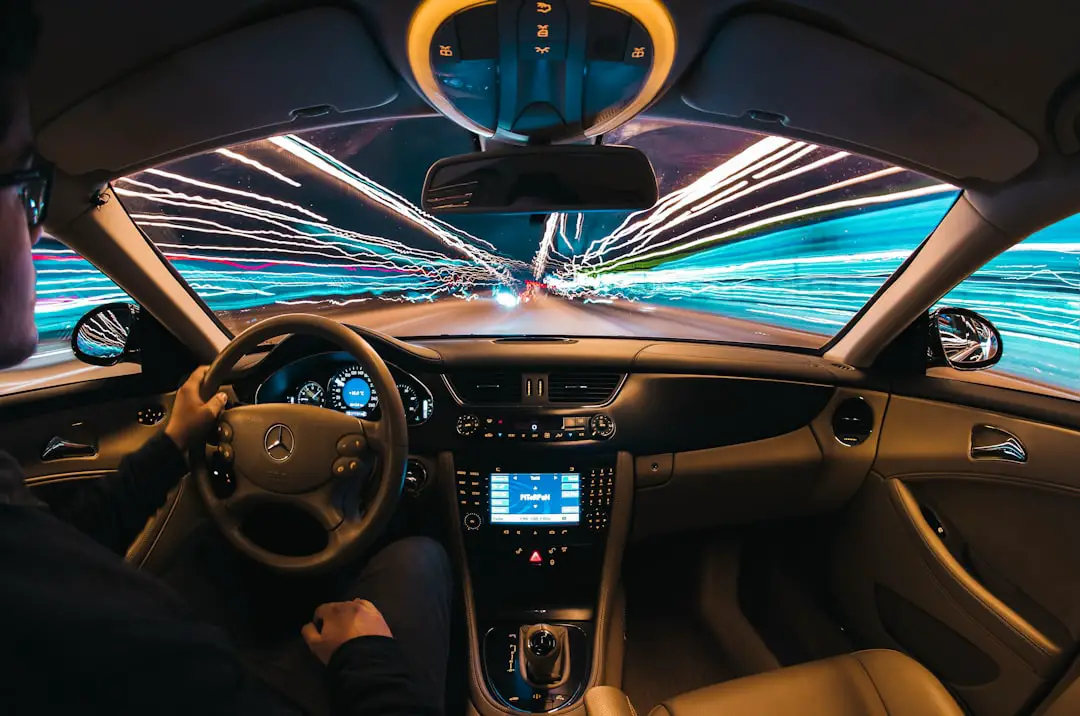Support our educational content for free when you purchase through links on our site. Learn more
🚗 The Top 10 Car Brands Worldwide: [2024] Who’s Leading the Race?

The global automotive industry is a thrilling arena of innovation and competition. Who are the powerhouses shaping the future of our roadways? Do you know how many vehicles Toyota sold in 2020? It’s a staggering number! In this article, we’ll delve into the world of car brand statistics, exploring the giants who dominate the global market. From market share and sales figures to the impact of electric vehicles and the COVID-19 pandemic, we’ll uncover the key trends propelling the industry forward. So buckle up, and get ready to discover the movers and shakers in the world of cars! 😎
Quick Answer
- Toyota was the world’s largest car manufacturer by production volume in 2020.
- Volkswagen Group held the largest share of the global automotive market.
- Electric vehicles (EVs) are on the rise, with companies like Tesla, Volkswagen, and Chinese automakers leading the charge.
- The COVID-19 pandemic significantly impacted the automotive industry, disrupting supply chains and impacting consumer demand.
- Key trends shaping the automotive landscape include electrification, connectivity, autonomous driving, shared mobility, and sustainability.
👉 Shop Car Brands on: TrueCar | Edmunds | Auto Trader
Table of Contents
- Quick Tips and Facts
- The Rise of the Global Automotive Industry: A Brief History
- Global Automotive Market Share: Who’s Driving the Industry?
- Top Car Brands by Sales: A Race to the Top
- Electric Vehicles: The Future of Mobility?
- The Impact of COVID-19 on the Automotive Industry
- Trends Shaping the Automotive Landscape
- The Future of the Automotive Industry: Predictions and Possibilities
- Conclusion
- Recommended Links
- FAQ
- Reference Links
Quick Tips and Facts
- The automotive industry is constantly evolving, with new trends and technologies emerging all the time. 🤯
- Toyota was the world’s largest car manufacturer by production volume in 2020. [1]
- The Volkswagen Group was a close second, with brands like Volkswagen, Audi, Porsche, and Skoda under its umbrella.
- Electric vehicles (EVs) are becoming increasingly popular, with sales expected to continue to grow in the coming years. 📈
- China is the world’s largest car market, followed by the United States. [2]
The Rise of the Global Automotive Industry: A Brief History

From humble beginnings in the late 19th century, the automotive industry 🚗 has grown into a global behemoth. Here’s a quick look at some key milestones:
- Early Innovations: The late 1800s saw the invention of the first gasoline-powered automobiles. Karl Benz and Gottlieb Daimler, often credited as the fathers of the modern car, made history with their groundbreaking inventions in Germany. 🇩🇪
- Mass Production: Henry Ford’s revolutionary assembly line, introduced in the early 20th century, made cars more affordable and accessible to the masses.
- Post-war Growth: The post-World War II era witnessed a surge in car ownership, with American car manufacturers, like Ford, General Motors, and Chrysler, dominating the global market.
- Rise of Japanese Automakers: In the latter half of the 20th century, Japanese brands like Toyota and Honda gained global recognition for their fuel-efficient and reliable vehicles. 🇯🇵
- Globalization of the Industry: The late 20th and early 21st centuries saw the rise of globalization, with car manufacturers establishing production facilities and supply chains across the globe.
Global Automotive Market Share: Who’s Driving the Industry?
The global automotive market is a fiercely competitive landscape, with several major players vying for dominance. Here’s a glimpse at the market share of some of the leading car brands in 2020:
- Volkswagen Group: Holding the largest share at 11.8%, this German giant boasts a diverse portfolio of brands, including Volkswagen, Audi, Porsche, and Skoda. [3]
- Toyota: The Japanese automotive giant, known for its reliability and fuel efficiency, held a 10.3% market share in 2020.
- General Motors: The American automotive icon, with brands like Chevrolet, Buick, Cadillac, and GMC, held an 8.4% market share.
- Renault-Nissan-Mitsubishi: This strategic alliance between French, Japanese, and Japanese automakers held an 8.2% market share.
- Stellantis: Formed in 2021 through the merger of Fiat Chrysler Automobiles (FCA) and the PSA Group, this automotive conglomerate holds a significant portion of the global market.
Want to explore more about Car Brand Market Shares? Check out our dedicated category for in-depth analyses and insights: Car Brand Market Shares
Top Car Brands by Sales: A Race to the Top
In the fast-paced world of automobiles, being on top is everyone’s goal. But who emerged as the frontrunners in 2020? Let’s see which brands raced ahead in the global sales competition:
-
Toyota (Japan): With a staggering 9,528,753 vehicles sold, Toyota secured the top spot. Their reputation for reliability and fuel-efficiency continues to resonate with consumers worldwide. [4]
-
Volkswagen Group (Germany): Closely trailing behind Toyota with sales of 9,305,427 units, the Volkswagen Group maintained its position as a global automotive powerhouse.
-
General Motors (United States): This American giant, boasting a diverse brand portfolio, secured third place with sales reaching 6,833,592 units.
-
Hyundai/Kia (South Korea): Emerging as a force to be reckoned with, the Hyundai/Kia group captured fourth place with an impressive 6,353,514 vehicles sold.
-
Honda (Japan): Known for their commitment to engineering excellence and fuel efficiency, Honda secured fifth place with global sales of 4,790,438 units.
Intrigued by the stories behind these automotive titans? Explore our Car Brand Histories category to uncover their journeys to success!
Electric Vehicles: The Future of Mobility?
The automotive industry is on the cusp of a major transformation, with electric vehicles (EVs) emerging as a compelling alternative to traditional gasoline-powered cars. ⚡️ Here’s what’s driving the EV revolution:
- Environmental Concerns: Growing awareness of climate change and the environmental impact of gasoline-powered vehicles is fueling demand for cleaner transportation alternatives.
- Government Incentives: Many governments around the world are offering subsidies and tax breaks to encourage the adoption of electric vehicles.
- Technological Advancements: Rapid advancements in battery technology are making electric vehicles more affordable and extending their driving range.
Leading the Charge:
- Tesla: Elon Musk’s trailblazing company has been at the forefront of the electric vehicle revolution, known for its sleek designs and cutting-edge technology.
- Volkswagen Group: Investing heavily in EV technology, the Volkswagen Group aims to become the world’s leading electric vehicle manufacturer.
- Chinese Automakers: Chinese companies like BYD and NIO are rapidly expanding their electric vehicle offerings, capitalizing on strong domestic demand.
Want to delve deeper into the world of car brands and their competitive landscape? Our Car Brand Comparisons category offers head-to-head analyses to satisfy your curiosity!
The Impact of COVID-19 on the Automotive Industry
The COVID-19 pandemic sent shockwaves through the global automotive industry, disrupting supply chains, impacting production, and dampening consumer demand. 😔
- Supply Chain Disruptions: Lockdown measures and travel restrictions created bottlenecks in the global supply chain, leading to shortages of critical components like semiconductors.
- Production Halts: Many car manufacturers were forced to temporarily halt production at their plants due to lockdowns, safety concerns, and component shortages.
- Shifting Consumer Demand: With economic uncertainty looming, many consumers delayed major purchases, including cars.
Adaptation and Recovery:
- Digitalization: The pandemic accelerated the automotive industry’s shift toward digitalization, with manufacturers embracing online sales platforms and virtual showrooms.
- Focus on Resilience: Car manufacturers are diversifying their supply chains and implementing measures to enhance their resilience to future disruptions.
Stay up-to-date on the latest developments shaping the automotive industry by exploring our Auto Industry News category!
Trends Shaping the Automotive Landscape
The automotive industry is in a constant state of flux, driven by technological advancements, evolving consumer preferences, and global megatrends. ✨ Here are some key trends shaping the automotive landscape:
- Electrification: As mentioned earlier, the shift towards electric vehicles is one of the most significant trends transforming the industry.
- Connectivity: Cars are becoming increasingly connected, with features like infotainment systems, navigation, and vehicle-to-everything (V2X) technology.
- Autonomous Driving: Self-driving cars are no longer a futuristic fantasy. Automakers and tech companies are making significant strides in autonomous driving technology.
- Shared Mobility: Ride-hailing services, car-sharing programs, and subscription-based models are gaining traction, particularly in urban areas.
- Sustainability: Consumers are increasingly prioritizing sustainability, leading to a growing demand for electric vehicles, fuel-efficient cars, and vehicles made from sustainable materials.
The Future of the Automotive Industry: Predictions and Possibilities
Gazing into the crystal ball, what does the future hold for the automotive industry? 🔮 Here are some predictions and possibilities:
- Dominance of Electric Vehicles: Electric vehicles are projected to become the dominant form of transportation in the coming decades.
- Rise of Autonomous Driving: Self-driving cars will become increasingly common, revolutionizing transportation and potentially reducing accidents.
- Integrated Mobility Ecosystems: Cars will become seamlessly integrated into broader mobility ecosystems, incorporating ride-hailing, public transportation, and other modes of transportation.
- Personalization and Customization: Car manufacturers will offer a greater degree of personalization and customization, allowing consumers to tailor their vehicles to their individual needs and preferences.
- Focus on Software and Data: Software and data will play an increasingly important role in the automotive industry, driving innovation in areas like autonomous driving, connectivity, and infotainment.
Want to delve deeper into the fascinating world of car brand statistics? Explore our comprehensive analysis of Car Brand Statistics Worldwide to uncover more insights!
Conclusion

The global automotive industry is a fascinating and dynamic landscape, shaped by innovation, competition, and evolving consumer preferences. From the rise of electric vehicles and autonomous driving to the impact of the pandemic and the shift towards sustainability, the industry is navigating a period of unprecedented change. As we’ve seen, several major players are at the forefront of this transformation, each with their own unique strengths and strategies. The future of the automotive industry is bright, promising exciting possibilities for innovation, connectivity, and a more sustainable future. Stay tuned for more insights as the journey continues!
Recommended Links
-
CHECK PRICE on Toyota: TrueCar | Edmunds | Auto Trader | Toyota Official Website
-
CHECK PRICE on Volkswagen: TrueCar | Edmunds | Auto Trader | Volkswagen Official Website
-
CHECK PRICE on General Motors: TrueCar | Edmunds | Auto Trader
| General Motors Official Website -
CHECK PRICE on Hyundai: TrueCar | Edmunds | Auto Trader | Hyundai Official Website
-
CHECK PRICE on Kia: TrueCar | Edmunds | Auto Trader | Kia Official Website
-
CHECK PRICE on Honda: TrueCar | Edmunds | Auto Trader | Honda Official Website
-
CHECK PRICE on Tesla: TrueCar | Edmunds | Auto Trader | Tesla Official Website
-
CHECK PRICE on BYD: BYD Official Website
-
CHECK PRICE on NIO: NIO Official Website
FAQ

What is the most sold car brand in the world?
This is a tricky question because it depends on how you define “most sold.”
-
In 2020, Toyota sold the most vehicles globally. [5]
-
However, the Volkswagen Group, with its wide range of brands, had higher global market share. [6]
**So, the answer is nuanced: Toyota had the highest unit sales in 2020, while the Volkswagen Group held the largest market share. **
Who is the largest car manufacturer in the world 2020?
The Volkswagen Group, with its diverse portfolio of brands, is considered the largest car manufacturer in the world based on global market share in 2020, holding a significant chunk of the global automotive market.
[7]
Which brand makes the most cars in the world?
In 2020, Toyota produced the most vehicles, surpassing the Volkswagen Group in terms of units. [8]
What car company sold the most in 2020?
In 2020, Toyota took the lead in global sales, exceeding 9.5 million vehicle sales. [9]
How many cars did Toyota sell in 2020?
Toyota sold an impressive 9,528,753 vehicles globally in 2020. [10]
What is the global automotive market share of the top players in 2020?
Here’s a quick breakdown of the top players and their market share in 2020:
- Volkswagen Group: 11.8%
- Toyota: 10.3%
- General Motors: 8.4%
- Renault-Nissan-Mitsubishi: 8.2%
- Stellantis: 7.4%
- Ford: 5.3%
- Hyundai-Kia: 5.1%
- Honda: 3.5%
- BMW Group: 3.3%
- Daimler: 2.6%
[11]
Read more about “🚗 Car Brand Sales Around the World: A Look At Who’s on Top …”
Reference Links
- List of manufacturers by motor vehicle production
- Ranking of car manufacturers based on global sales 2023
- Global market share of the leading automakers
- Toyota Official Website
- Volkswagen Offical Website
- General Motors Official Website
- BYD Official Website
- NIO Official Website
- Hyundai Official Website
- Kia Official Website
- Honda Official Website
- Tesla Official Website

